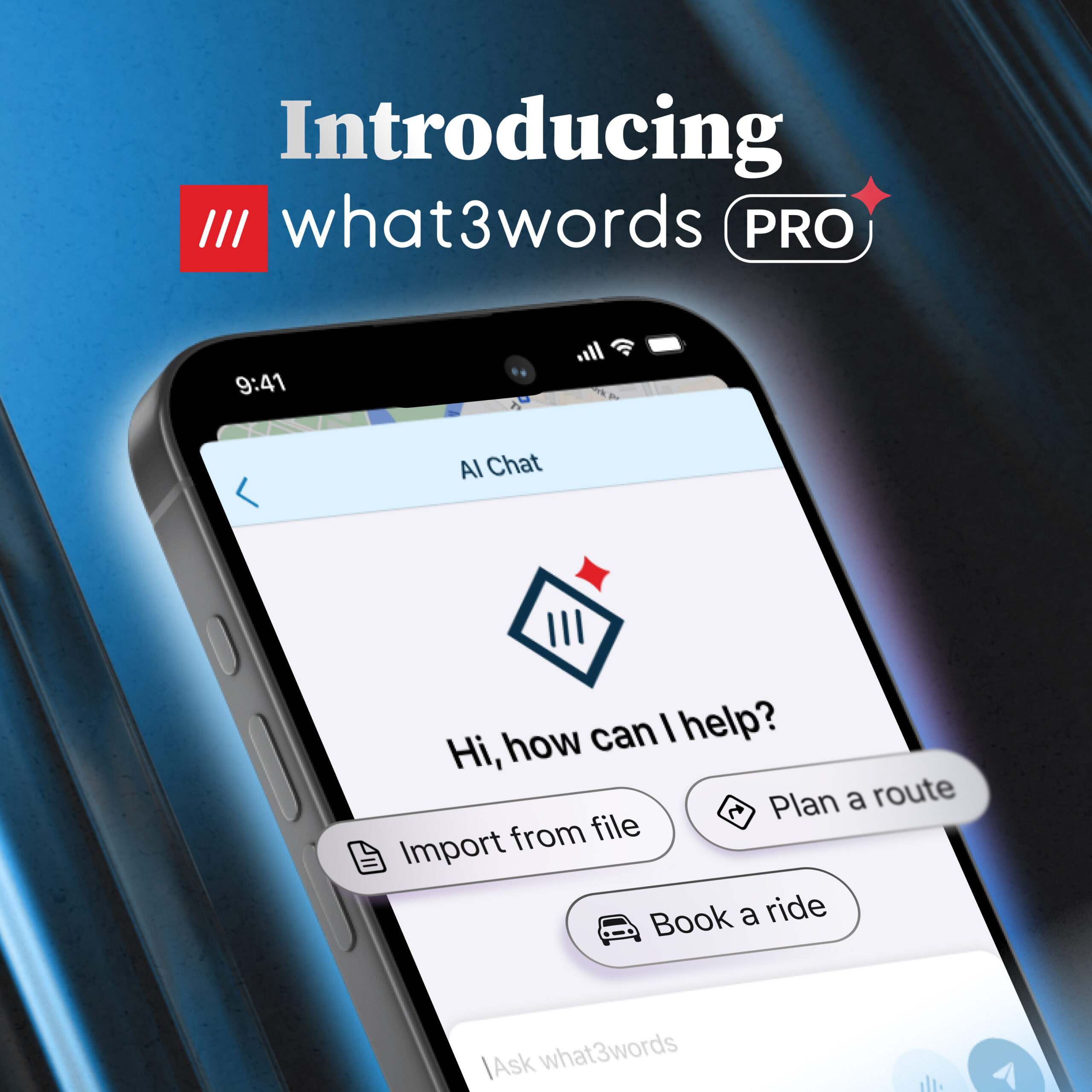
iNavi Air becomes Korea’s first pure play navigation app to adopt what3words
iNavi, one of South Korea’s leading navigation companies, has today announced that it has integrated what3words into its consumer navigation app, iNavi Air. iNavi Air is the first pure play navigation app in the country to adopt this precise technology. Now, iNavi Air users can easily search, discover and navigate to anywhere in the world using three simple words.
Street addressing can be challenging which makes navigating to certain destinations difficult. Large apartment complexes, concert venues and shopping malls have multiple entrances and addresses that cover broad areas. Rural areas such as beaches and parks often don’t have addresses at all, and require lengthy explanations or written directions to navigate to. In fact, when it comes to trying to navigate to a location with a street address or postcode, nearly a quarter of South Koreans find that the pin drops in the middle of a building rather than at the correct entrance or door, and almost a fifth of people have been taken to the wrong place entirely. 1
This is a problem what3words is designed to solve. It has divided the world into a grid of 3m x 3m squares, and given each square a unique combination of three words: a what3words address. Now every building or station entrance, parking space and meet-up spot in the park has its own what3words address. For example, ///archives.sound.energy takes you directly in front of Seoul Station’s Culture Building. what3words is available in 54 languages to date, including Korean, and free to download on iOS , Android , and the online map at what3words.com.
The what3words integration provides iNavi Air users with an extra layer of accuracy, allowing them to search, discover and navigate anywhere, even locations without a typical address. Users can navigate to a what3words address by searching for it, or clicking the iNavi Air map to discover the what3words address for that precise location. what3words addresses will be displayed in both Korean and English, making it very easy to use.
Eunbok Lee, iNavi Systems Mobility Manager, said: “The partnership with what3words will accommodate iNavi Air users and provide precise and accurate location data of 3m x 3m size even if users don’t know the company name. As this is possible, we expect that its utilization in mobility services such as taxi and delivery will also increase.”
Chris Shelrdick, Co-Founder and CEO of what3words, commented: “I’m sure everyone can think of a time when they got lost trying to navigate somewhere because the address was inaccurate or incorrect. This can be frustrating if you’re off the beaten track on holiday, trying to get to a meeting that’s in a multi complex building, or simply looking for the right entrance for a concert. It’s fantastic to be working with a forward-thinking business like iNavi to help bring our easy-to-communicate location technology to millions of people in Korea.”
iNavi Air is a cloud-based mobile navigation app from iNavi Systems, a long established company in the industry for more than 20 years. iNavi Air has been trusted by users for its diverse features and optimized user interface (UI) for vehicle displays for mobile, Android Auto, and CarPlay integration. In addition, iNavi Systems provides a map platform service (iNavi Maps Platform) through NHN Cloud, and has secured various customers, such as cargo transportation (CJ Logistics), delivery (Woowa Brothers), taxi hailing (T-Money Onda, i.M Taxi, Banban Taxi), app meter (Loca Mobility), and insurance companies (Samsung Fire & Marine Insurance). Earlier this year, the company expanded its presence in the automotive market by being selected as the map provider for TomTom, Europe’s No. 1 map provider, and for Digital Cockpit services in Korea.
what3words is being used by millions across the world. The technology has been adopted by leading car brands such as Mercedes Benz to enable drivers to navigate to precise destinations with ease. E-commerce and logistics brands such as DHL, Shuttle Delivery and Domino’s Pizza are using the technology to collect precise delivery locations at checkout, and to make sure goods arrive exactly where they’re needed. Companies such as Lonely Planet use what3words to help travellers find hotel entrances and hidden gems. Emergency call centres are also embracing what3words at a rapid pace, with control rooms in the UK, US, Singapore, and beyond all utilising the innovative technology. Just like street addresses, what3words addresses are being displayed on website contact pages, event invites, and business cards, so people can find exact destinations with ease. And every day, what3words is being used to arrange meet-ups in parks and on beaches and to share running, hiking, and sports match locations.
1 Survey results based on research conducted by OnePoll to 1,000 adults in South Korea aged 18+ in October 2021.



